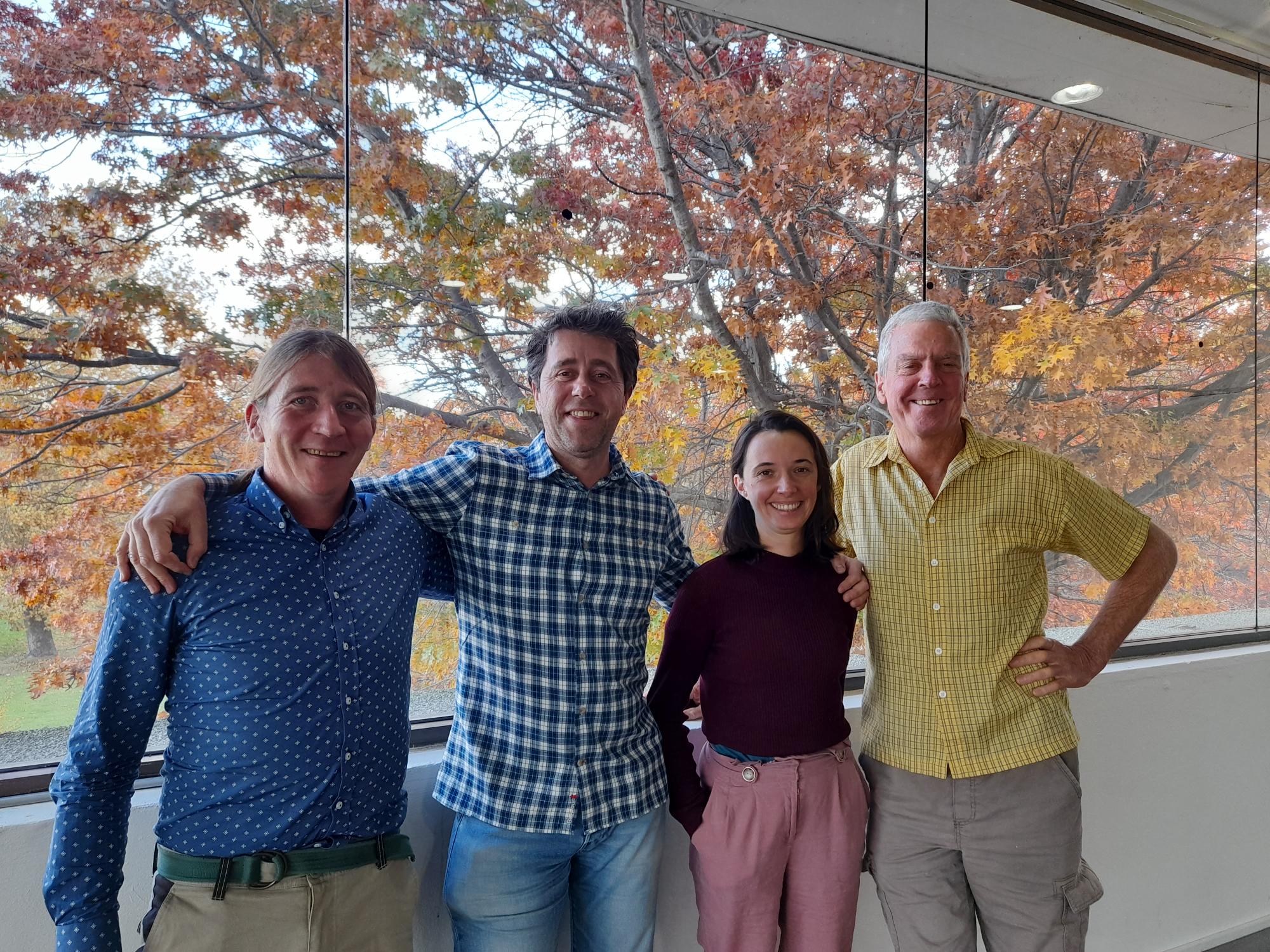NRM South’s Sustainable Agricultural Facilitators, Yolanda Hanusch and Tim Ackroyd, recently attended the first biennial Sustainable Agricultural Facilitator (SAF) Conference in Canberra, hosted by NRM Regions Australia and funded by the Department of Agriculture, Fisheries and Forestry.
The conference introduced SAFs from across the country to their new role (previously known as Regional Agriculture Landcare Facilitators) and discussed how it can complement and work alongside other federally funded initiatives that are supporting sustainable agricultural practices in Australia, including the Carbon Farming Outreach Project, Regional Soil Coordinator Program, and Future Drought Fund and Climate-Smart Agricultural Projects.
The SAF is a nationally funded role, working with farmers, landholders, community groups, and agriculture industries, to support the uptake of climate-smart, sustainable agriculture practices. This includes assisting them to navigate the complexity of biodiversity and carbon markets, and practices that support emissions reduction and build climate resilience on-farm.
Important conference topics under discussion included carbon farming and environmental markets and how SAFs can play a role in communicating the benefits, opportunities and risks in participating in these markets. Some of the key messages to come out of the conference covered the critical urgency in emissions reduction, the impact of climate change on global productivity, emissions targets, and the emerging role of the Nature Repair Market.
Current data is highlighting that climate change has led to a 21% reduction in global agricultural productivity. Management practices can be implemented that have a positive impact on our environment, reduce emissions whilst supporting agricultural productivity.
The global outlook is going to present significant challenges, but we have options to reduce emissions and reduce our contribution to climate change here in Australia. We don’t have decade, we only have a few years, we need to start looking at implementing changes now and on a monthly basis.
There are commitments from the Agriculture and Land Sector to meet net zero emissions by 2050, through the Australian Agriculture Sustainability Framework – coordinated by the National Farmers Federation. There are already some specific requirements from international markets on the supply chain to demonstrate no or low emissions, and more will likely be coming.
Australia is the first country to introduce a national voluntary Nature Repair Market and Agriculture stewardship pilots through a legislative framework and Nature repair bill. This is one of several possible solutions to help address climate change. That should make more resources available to landowners to undertake actions that protect and enhance natural assets and reduce greenhouse gas (GHG) emissions on their properties.
Australia is the first country to introduce a national voluntary Nature Repair Market and Agriculture stewardship pilots through a legislative framework and Nature repair bill. This is one of several possible solutions to help address climate change. That should make more resources available to landowners to undertake actions that protect and enhance natural assets and reduce greenhouse gas (GHG) emissions on their properties.
Tim and Yolanda enjoyed the opportunity to network with other SAFs and to explore how collectively we can support climate smart agriculture across our various regions and are looking forward to assisting the agricultural and land management community in southern Tasmania through our SAF role over the next 4 years. You can find out more about the SAF role here. If you would like to get in touch with Tim or Yolanda you can drop us a line on 0447 266 527 or email our main office at [email protected]
Sustainable Agricultural Facilitator





